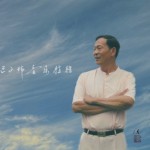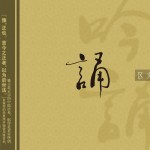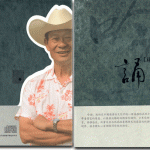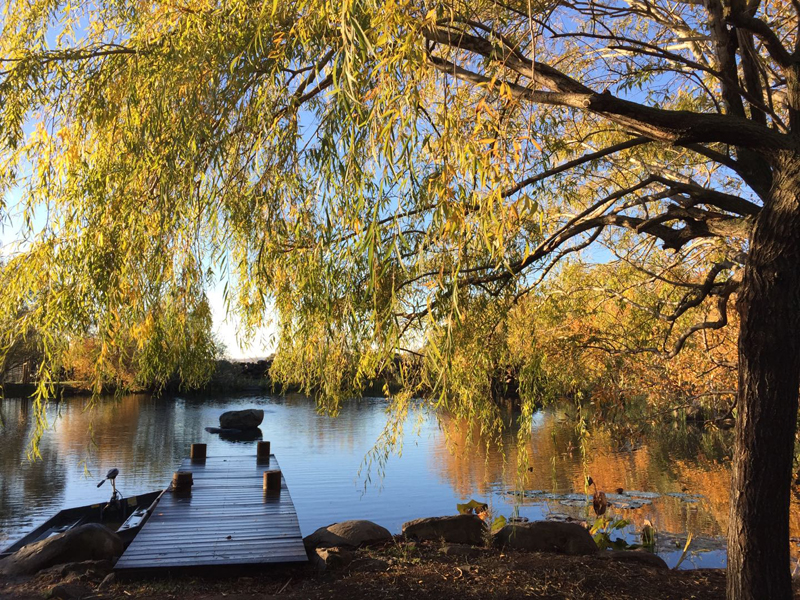Thoughts On Pangu Advanced Retreat 2017 — by Paul Fraser
There is always so much I want to say about an event with Master Ou and always, it seems, I find myself unable to express the depth and magnitude of feeling and experience that comes from a journey I know I am unable to fully comprehend.
Whenever I am asked, “How was Master Ou’s?” my first response is usually a stale, platitudinous, conditioned response: “It was great!” Or some half muttered superlative comes rushing past waves of gratitude, ethereal longing, incredulousness, surreal memories, perceptual overload, developing erudition and a vague sense that some profound spiritual history has unfolded and I managed to trip over it: “Brilliant…genius….fabulous…life changing, really…..” and I am met with a polite smile or assenting grunt usually reserved for a person at a dinner party who’s had just a touch too much wine.
It’s true, of course. It is great… and brilliant and life changing.
There is the breathtaking beauty of Pangu Ranch itself: nestled within rolling hills, you come upon it after a steep climb up a windy road. A quick pass through a gate and a short bridge reveals a fish pond to your left (complete with a small boat), framed with weeping willows, a smartly situated, red-painted fish shack, dock, and sitting area. You’re greeted with a team of ducks quacking hello (Mandy’s ducks, who respond to her nightly calls and furiously waddle their way up the hill to be fed and tucked inside a wire framed hut to keep them safe from becoming nocturnal hors d’oeuvres to the passing coyotes.) A short climb farther as you near the house, also to the left, and you’re met with lush grapevines from the part of the land they share with a local vineyard. Climb farther and discover numerous and various fruit trees, each one planted by Master Ou and his team of devoted students, majestic oak trees and a feature both miraculous and easily overlooked: hundreds of flowers that continue to bloom even though their blooming season is well past. In each nook of flowers there are vegetables ranging from winter squash, several types of choi, zucchini and summer squash.
The house itself is an elegant ranch. Detailed wood work, tasteful colors, a spacious kitchen, home theatre and room for guests all add to a sense of welcome that greets the visitors.
Out back you’ll find a small building used as a classroom, several more vegetable gardens and fruit trees, a man made stream with a small arcing bridge to cross it, and a few strategically placed sitting areas to enjoy the surroundings.
It is a step toward paradise in view, atmosphere and intent, an ideal place for the imparting and, hopefully, the receiving, of wisdom.
Much of Master Ou’s teaching for that weekend centered around the meaning of faith and how best to live according to that faith. He began by asking us what our understanding of the word “faith” was. The replies fell primarily into three categories: belief in something despite the absence of proof, a type of loyalty to a way of being, and a devotion to a set of ideals.
Master Ou agreed that these responses all contained aspects of faith but did not truly describe its essence. He said that faith is a guiding set of principles that lead us to become the people we strive to be. More than ideas or ideals, these principles, when fully accepted, lead us away from our own harmful tendencies (rooted in greed, self centeredness and laziness) and towards love.
And yet this love is beyond an emotional state. It is love in action. The actions, he said, included being willing to endure mistreatment while maintaining behavior and demeanor that could inspire others towards kindness; they meant working harder— at our professions, maintaining our homes, in assisting others, all in ways that would exceed expectations whenever possible; they required us to remain diligent in finding ways to improve ourselves through knowledge, in acquiring skills that could bring more benefits to others, and in constant examination of our own strengths and weaknesses so that we might discover where and how we might improve.
While developing these aspects of ourselves, Master Ou reminds us to remain humble, to listen more than we talk, not seeking acknowledgement, approval or even support from others, but to remain steadfast in devotion to bringing more happiness to those around us. The result, he said, will be a gradual transformation within us, a movement toward more peace of mind, health of body, harmony in relationships and increased clarity of purpose.
After outlining his requirements, Master Ou proceeded to offer real life examples of applying the faith he mentioned that changed his life and the lives of those students who have been willing to follow his example. Through it all, he offered himself as a role model, not just through his words but through his example of patiently answering questions with care and thoughtfulness, in preparing magnificent feats of meals three times each day, in offering encouragement to his students and acknowledgement to his wife and daughter for the painstaking efforts they put forth. All of this, it was clear, was done with deep sincerity of heart, humility and an ease and grace that added the sense of calm welcome that prevailed throughout the retreat.
Many times I have said, with no small trace of pride, that “Master Ou is my teacher.” What I strive for most all is to become truly deserving of Master Ou saying, “He is my student.”




 Mr. Xue
Mr. Xue




 Paul Fraser
Paul Fraser